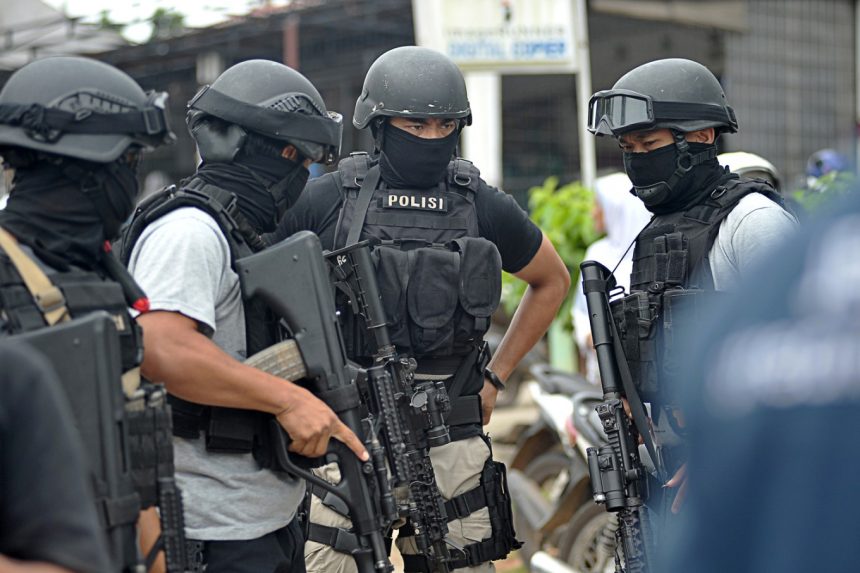Indonesia has seen a rise in the number of people getting radicalised even as there appears to be a shift in terror tactics of late.
Commissioner General Mohammed Rycko Amelza Dahniel – who is the head of the country’s National Counterterrorism Agency (BNPT) – said on Thursday (Jun 27) that there has been a paradigm shift in how these groups conduct themselves.
“There is a shift of paradigm, a shift in their approach, from hard attack to soft attack. So they want to destroy Indonesia, (through) destroying the nation’s young generation,” Rycko said.
He noted that there were “zero terrorist attacks†in Indonesia over the past year up until June 2024 but warned that the figure could potentially mask deeper issues and that the public should not be complacent.
Among others, Mr Rycko highlighted three indicators which he believes have shown an increase in the activities of the terror cells as well as radicalisation among Indonesians.
The head of the counterterrorism agency warned that there has been a noticeable uptick in the arrests of terrorists and the seizure of evidence compared to the previous year.
“(There has been an) increase in the seizure of evidence of firearms and sharp weapons,” Rycko was quoted as saying by state news agency Antara.
He added that there has also been a rise in fundraising activities for the terror cells – through bogus donation drives – including those misleadingly marketed as help for victims of natural disasters.
“The funds (are collected) by asking for donations to be deposited in mosques, musollahs (prayer rooms), and even placed at traffic intersections.
“They used pictures of volcanoes erupting, pictures of disasters happening, or people with disabilities in photos pasted on boxes, so people would donate their money,” said Rycko, adding that the authorities have intercepted thousands of these fake donation boxes.
Lastly, he said that the agency has seen an increase in the radicalisation among the public in Indonesia done through a softer approach compared to more overt tactics.
The change in pattern, Mr Rycko said, is due to the terror masterminds’ understanding that the general population tends to reject overt violence.
Research conducted by the counterterrorism agency since 2016 found that teenagers, children, and women are the primary targets of the radicalisation efforts.
“(This) makes them a vulnerable group to be radicalised,†Rycko was quoted as saying by CNN Indonesia.
Responding to CNA’s queries, a senior official at Indonesia’s Ministry of Women Empowerment and Child Protection said that families and communities must be the first line of defence to prevent children from becoming entangled in terrorism networks.
When asked about children who become perpetrators after being radicalised by their family members, Mr Nahar – who is Deputy Minister for Child Protection at the ministry – said that efforts should include teaching them about national values, re-educating them as well as providing social assistance among others.
Since this year, BNPT has intensified its efforts to stem the increasing rates of radicalisation among members of the public. Its findings reveal a rise in intolerance, stemming from a lack of understanding of violent ideologies.
“This study resulted in the conclusion that there is a lack of education and public awareness, and the (public’s) knowledge of the ideology of violence does not exist,” said Rycko.
____
CNA






